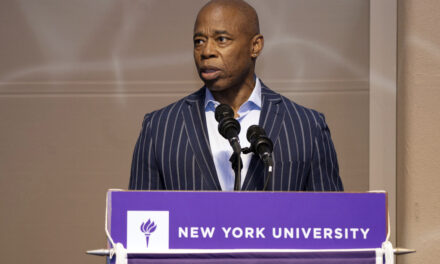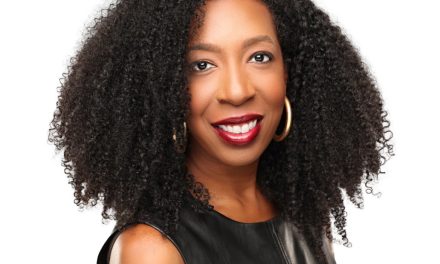
The Baltimore County Upsilon Epsilon Omega chapter of Alpha Kappa Alpha Sorority and Ladies of Vision Charities Inc. hosted a virtual conference, “Our Health and Our Wealth: Powering Past The Pandemic,” on Oct. 2.
By Nadine Matthews
Special to the AFRO
“Health and wealth go together,” asserted Cardiologist Dr. Melissa Burroughts at the recent Baltimore County-based Upsilon Epsilon Omega chapter of Alpha Kappa Alpha Sorority and Ladies of Vision Charities Inc. -hosted virtual conference, “Our Health and Our Wealth: Powering Past The Pandemic.”
As the pandemic’s inflection point nears, where over half the U.S. has been fully vaccinated, the group discussed strategies for healing from its traumas, strengthening the underlying structures that made it hardest on Black and Brown people, and and how we can all ”power forward, post-pandemic.” The main event was followed up by three smaller breakout room meetings discussing finance, children’s health and men’s health.
The event was hosted and moderated by Lauren Jones, and Genelle Griffith Herring, and chapter President Kendra Brown. Speakers included County Administrative Officer for Baltimore County Stacey L. Rodgers, Reverend Dr Veronica Clark Tasker, President and CEO of The United Way of Central Baltimore Franklyn Baker, Dr. Burroughs, and others.
Rev. Clark-Taskers spoke to the real but elusive mental health impacts of the pandemic. “How do we recover from something we can’t see and don’t understand. How do we recover from feelings of suicide ideation that is becoming the norm instead of the exception in our community?” she asked rhetorically. “We do have a way out,” she said, “and it’s called information.” Rev. Clark-Tasker urged people to be discerning about where they get their health information.
She also implored parents to make mental health checkups a normal part of their childrens’ medical care. “We think it’s only the parents and older people,” she stated. “But young people are suffering mentally because of lack of socialization. Now that they’ve returned to school people say they’re acting out. They’re not. They’re crying for help.”
Not surprisingly, Rogers’ emphasis was on how public policy could be used to move forward and how it needed to change to meet the needs of Black and Brown communities. She stressed public policy moving forward with structural justness at its core. “The pandemic shed significant light on disparities that existed prior to the pandemic,” Rogers stated. “They had a devastating impact on communities of color and disenfranchised communities from an economic standpoint, and most definitely from a health standpoint. That requires and mandates that we look at everything through an equity lens. Every decision that we make, we have to make that decision through a lens of equity, and inclusion”.
Rogers pointed to federal funding that has mitigated some of the impact of the pandemic. “The Cares Act and American Recovery Act is helping us to continue our pandemic approach.” That includes housing eviction prevention, childcare, enabling education by providing vaccinations and PPE and doing outreach to small businesses to make them aware of grant opportunities. “Although we weren’t able to keep every small business open, I feel that infusion of funding helped keep a lot of businesses afloat,.”
Dr. Burroughs more directly focused on the health status of many Black Americans, sharing that they were overrepresented in adverse health measurements in general and how that in turn exacerbated the effects of the pandemic. “African Americans have been disproportionately affected by severe COVID 19 infection resulting in hospitalization,” she said. “While African Americans represent around 12.7% of the population, they represent 44% of the COVID-19 hospitalizations.” She also stated that “age-standardized”Blacks represented 22.3% of COVID deaths. Burroughs was also careful to point out that the numbers are similar for Latinos and Native Americans.
Burroughs also highlighted the structural realities that contributed to COVID’s disproportionate impact in the Black community. Black Americans, due to their tendency to be overrepresented in the service industries, Burroughs also explained, were simply more exposed to COVID and thus more likely to contract it. In addition, Blacks tend to have more issues with access to health care. This, combined with their economic status results in comorbidities, or underlying health problems such as high blood pressure, diabetes, and obesity; variables that act as aggravating factors in the severity of COVID.
Help us Continue to tell OUR Story and join the AFRO family as a member – subscribers are now members! Join here!
The post Baltimore AKAs host conference on powering past the pandemic appeared first on AFRO American Newspapers .











